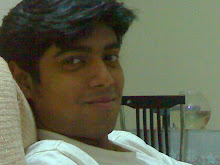Is the media caste-biased?
Media watching by media professionals is a self-indulgent hobby. Left best to the privileged and the pretentious in the tribe. But in these unusual times, as the country gets polarised on the reservation issue, there is a need to look into the mirror. Is a casteist monster staring right back?
Talk to any Dalit activist/pro-quota campaigner today. A common grouse would be that the media, especially the English language media, has exposed its upper caste bias. That while reporting the government’s move to reserve 27 per cent seats for the OBCs in IITs, IIMs and central universities and the ensuing protests that followed, the media has eschewed its dominant professional norm---impartiality.
There are interviews of agitating doctors, of Knowledge Commission members putting in their papers in protest, of sociologists and industry experts pointing out the impending loss of merit and the dumping down of institutions of international standards. Point taken. But where’s the contrarian view? What about the OBCs who are meant to be the beneficiaries of the move? Why isn’t there a single story looking at the issue from their point of view? Before we trash Mandal II, wasn’t there a need to examine whether Mandal I has really helped?
This is not to say that Arjun Singh is a 21st century social reformer. The argument in favour of reservations may be a seriously flawed one. Is it the best form of affirmative action? Perhaps it isn’t. Does it, as has been pointed out, smack of political opportunism (a move by the Congress to regain control over its traditional vote bank)? Perhaps it does. But the attitude of the protestors and the lop-sided stand that the media has taken raises questions about whose representative the media is. Of the 900 million citizens who live in less than Rs90 a day or the privileged 200 million who are upset and angered at the apparent loss of merit.
Perhaps we are asking for too much here. At a time when publication policies are being determined by the diktats of the market, it is but natural that the voiceless won’t find a voice in the fourth estate. When stories on caste atrocities are consigned to the obscurity of inside pages, one cannot expect that the media would be sensitive to those who need some form of affirmative action, if not quotas. There have been arguments for concentrating on primary education instead.
Statistics will show that even in Left-liberal West Bengal there is a high percentage of dropouts from government-aided schools because of caste bias among the teachers themselves. Such stories are not reported. Such problems are not dealt with. Quota kills merit. Newspapers and television channels have been telling you that. Has there been an attempt to look at Tamil Nadu, Karnataka, Andhra Pradesh and Kerala where mandatory quotas ranging from 69.5 per cent to 49.5 per cent have been in place since decades without social turbulence. Does this mean engineers, doctors, MBAs from these states are of substandard quality (as has been asked by a lone columnist)? Would the media have been slightly more sensitive if it had a substantive representation of backward castes? Perhaps. But where are the Dalit journalists?
On November 16, 1996, columnist BN Uniyal published his "In Search Of a Dalit Journalist", in a Delhi-based publication. Uniyal was confronted with a 'strange' query from a foreign correspondent who wanted to meet a Dalit journalist. The latter wanted to seek the opinion of a Dalit journalist over the reported dispute between Kansi Ram and few journalists. Uniyal wanted to help his foreign counterpart, and thus begun his hunt for a Dalit journalist. He spoke to a number of editors, media personalities, social activists, but could not find one. "Suddenly I realised that in all the 30 years I had worked as a journalist, I had never met a fellow journalist who was a Dalit; no, not one. And worse still, was the thought that during all those years it had never occurred to me that there was something so seriously amiss in the profession, something which I should have noticed as a journalist. In all these years I have travelled almost every district of the country in the company of numerous journalists and met hundreds of others in different in different cities and towns and yet do not remember having met any Dalit journalist," he wrote. Maybe, therein lies the problem.

